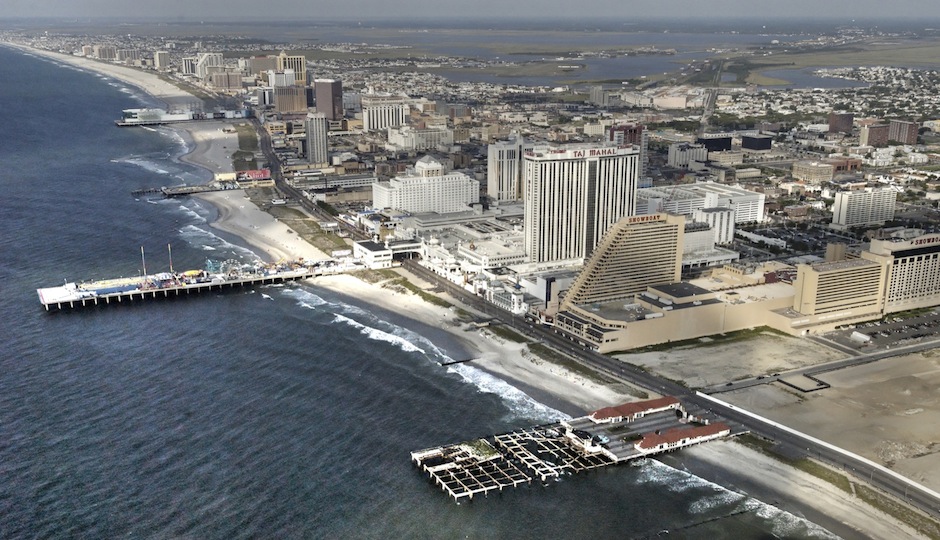Forget Casinos: Let’s Make Atlantic City a Marijuana Tourism Destination

Photo | Wikimedia Commons.
Philadelphia thought it was pretty darn progressive by decriminalizing marijuana in 2014, but if one New Jersey lawmaker has his way, Atlantic City could one-up Philly by becoming an all out marijuana tourism destination like Vancouver, Denver, Seattle and Amsterdam.
New Jersey State Assemblyman Reed Gusciora says he’s set to introduce his new bill in the legislature on Thursday. If passed, the bill would let New Jersey voters decide whether marijuana should be legalized just in Atlantic City as a measure to rescue the shore town from financial destruction. The Mercer County Democrat’s proposal would allow for the use, sale and commercial cultivation of marijuana by those 21 and older.
Now, if you’re imagining yourself buying a quarter ounce of Purple Haze at those junky shops that line the Boardwalk or in the Borgata’s gift shop, think again. Gusciora’s marijuana legalization proposal wouldn’t turn Atlantic City into a giant pot free-for-all.
“If you go to Seattle and Vancouver, legalized recreational dispensaries are not in the downtown area,” says Gusciora, explaining that the Atlantic City dispensaries would need to be located in areas currently less traveled.
There’s local precedent of a sort for what Gusciora is suggesting. In 1976, with a once-thriving Atlantic City facing a decline similar to today’s, voters passed a referendum to legalize gambling, and before long, Atlantic City became the Las Vegas of the East. So if legalized gambling worked for decades, why not marijuana legalization?
“Unfortunately, you people from Pennsylvania are no longer coming into our state for the casinos,” Gusciora laments. “People aren’t coming from Delaware or New York either, because there are plenty of casinos there. By passing recreational marijuana legalization, we can attract a whole new crop of tourists, whether you’re from the Woodstock generation or in your 20s. Either way, you win.”
Gusciora hasn’t commissioned a study to see just how much money could be brought in, but tax revenues would, no doubt, be substantial. During its first year of marijuana legalization, Washington State generated $70 million in taxes out of a total of $257 million in marijuana sales. Colorado collected more than $135 million in tax revenue during in its inaugural year. True, Atlantic City is less than 20 square miles as opposed to an entire state, but it’s in the state that happens to be the country’s most densely populated, and Pennsylvania and New York are just a quick drive away.
In Gusciora’s marijuana legalization plan, a tax of 20 percent would be imposed on all commercial growth and retail sales of marijuana. Of that 20 percent in tax, 50 percent would be deposited in Atlantic City’s general fund, 30 percent would be earmarked for transportation projects, and ten percent would go to decrease overall drug use. The remainder would be divided among women’s health, family planning and other public health and safety programs.
But for Gusciora, it’s not just about the money. In addition to being a member of the state legislature, he’s also a municipal prosecutor and has seen first hand the impact of New Jersey’s current marijuana laws, which disproportionately impact people of color. And marijuana arrests have increased in New Jersey recently, making up 57 percent of all drug-possession arrests there.
“I see college kids coming in all the time who now have criminal records,” Gusciora observes. “The cops have better things to do. They could concentrate on bad criminals.”
One thing’s for sure: Gusciora better hurry, because the competition could soon get even worse. As Atlantic City casino revenue continues to drop, developers are itching to build two new casinos in Northern New Jersey, and in November, Nevada residents will vote on a referendum that will, yep, legalize marijuana in Las Vegas and the entire state.
Follow @VictorFiorillo on Twitter.


